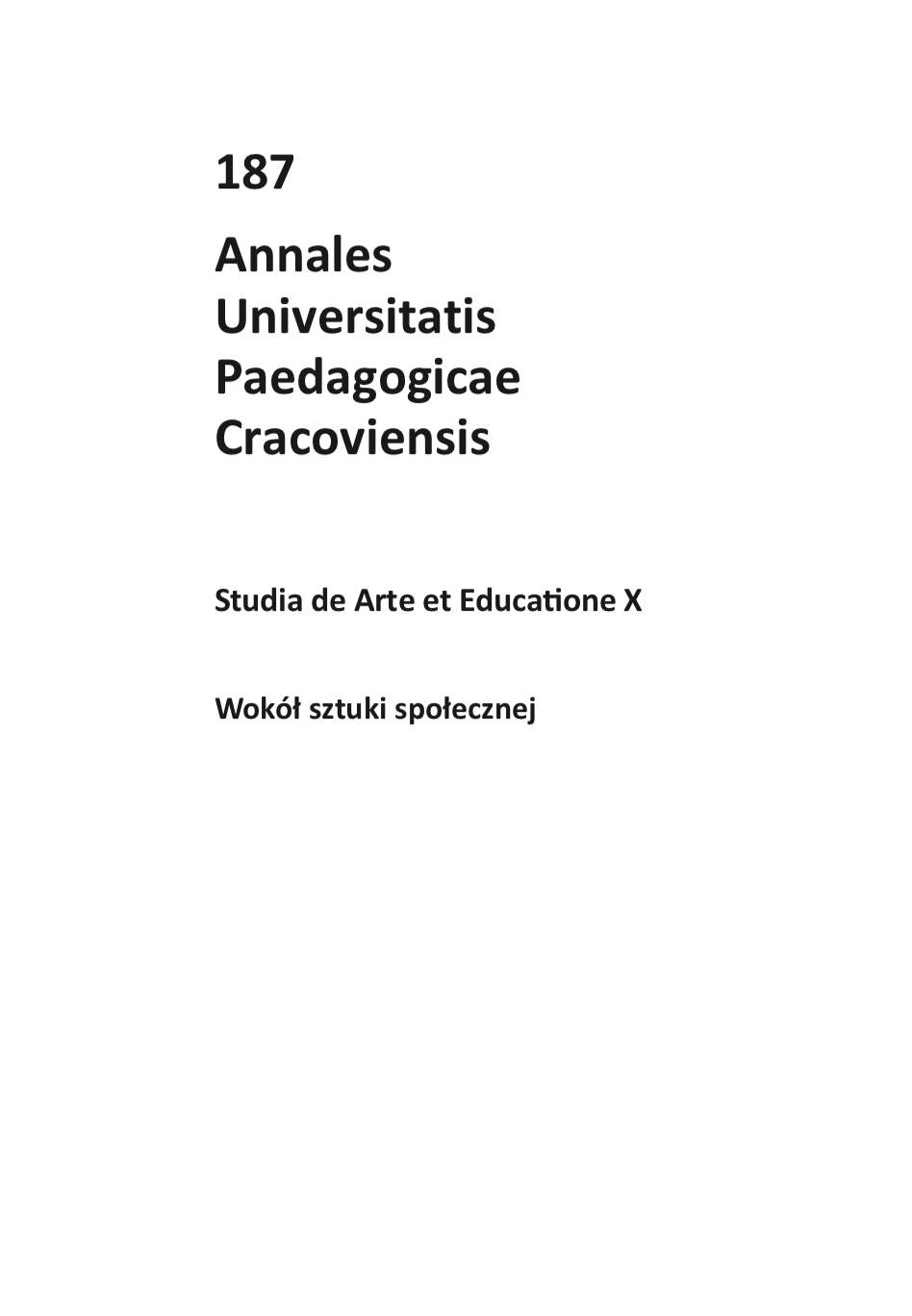Tak zwana sztuka publiczna (w Polsce)
So called public art (in Poland)
Author(s): Magdalena UjmaSubject(s): Sociology of Art
Published by: Wydawnictwo Uniwersytetu Komisji Edukacji Narodowej w Krakowie
Keywords: public art; public space; public sphere
Summary/Abstract: The article focuses on public art in Poland. It explores the reasons behind its popularitysuch as, for instance, modernization of the state which speeded up when Poland joinedthe European Union. We are currently observing rapid development of cities and rivalrybetween them that has also spread to the field of culture. Public art has become a tool in thisrivalry. There are more reasons for today’s demand for this kind of art, starting from thetradition of artistic life in the People’s Republic of Poland (open-air sessions, events involvingcooperation between artists and scientists, sculpture parks), via various street-relatedsubcultures (happenings in the 1980s, street art, graffiti), urban activism, e.g. actions againstthe abundance of advertising in public space or the residents’ struggle for better qualityof everyday life, via art being treated as a marketing tool by politicians, to contemporarydiscussions about the shape of democracy, public debate, the right to free speech and thepolitical nature of art. The text also emphasizes the diversity of form typical of public art (e.g.monuments, politics-related activities, arts education and efforts towards social change). Thearticle cites the most significant opinions and attempts at defining public art in Poland bysuch authors as Rosalyn Deutsche, Piotr Piotrowski, Joanna Erbel and Kuba Szreder. It showsa variety of concepts, including the most radical one – art as such is public, therefore theidea of public art as a separate phenomenon is fundamentally flawed. The final section of thearticle is devoted to the discussion of selected instances of public art (Joanna Rajkowska’sGreetings from Jerusalem Avenue, Julita Wójcik’s Rainbow, Arek Pasożyt’s Painting Workshop“Not to Reject”), their functioning in urban space, social space as well as public debate.
Journal: Studia de Arte et Educatione
- Issue Year: 10/2015
- Issue No: 187
- Page Range: 4-14
- Page Count: 11
- Language: Polish

